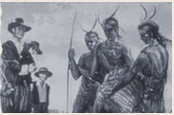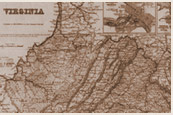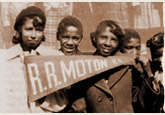"Remember the Maine!" (Editorial)
Mount Holyoke College International Relations Program: Documents Relating to American Foreign Policy Between 1898-1914
"Remember the Maine!" (Popular Song)
Southwest Missouri State University: Max Hunter Folksong Collection
"Remember the Maine!" (Poem)
Library of Congress: American Memory--The Printed Ephemera Collection
Description: These three digital resources deal with the same subject in different media. Juxtaposing these resources gives students an opportunity to explore contemporary public sentiment surrounding the explosion of the battleship Maine in Havana Harbor on February 15, 1898. This fatal explosion became the crowning event in a troubled international situation which led to the Spanish-American War. The first resource is a lengthy editorial published in American Monthly Review of Reviews; the author takes a strong stand against Spain, asserting Spain's complicity in the destruction of the Maine. The author argues for a U.S. declaration of war against Spain, a war he believes the United States would easily win. Some students might find this long essay intimidating, but it reads well and outlines positions which students of United States history will find familiar. The second resource is a folk song (with music, lyrics, and ReadAudio playback of a 1950s folksinger performance), whose intent would have been to stir public sentiment against Spain and in favor of war. The third resource shows the image of a poem published in a monthly periodical in March 1898, with accompanying explanation that it was written for a benefit performance at the Academy of Music in Philadelphia in aid of the survivors of the explosion which destroyed the USS Maine the previous month.
Teaching Tips:
"Do Now" Suggestion
- Students could begin class by making a pro/con chart, giving reasons for and against a declaration of war on Spain by the United States. After a short discussion, students could begin reading the 1898 magazine editorial "The Blowing Up of The Maine." Students could begin by writing a short editorial urging the United States to declare war with Spain, or to avoid war, because of the destruction of the USS Maine. After a short discussion of their points of view, students could read the magazine editorial. Students could begin class by reading the song (or poem), and then brainstorm a list of emotions/responses to the song or poem. Students could then share the items on their list, and discuss the impact that the song or poem might have had on American citizens in 1898, when emotions regarding the loss of the Maine would have been very high.
- After reading Albert Shaw's "The Blowing Up of The Maine," students could also read an opposing viewpoint from the same period in "Can the United States Afford to Fight Spain?", and compare and contrast the two arguments, offering possible motivations for each author's perspective and determining which article they found more persuasive on its own merits (not on their own predispositions). All of this could be then be shared in a general class discussion. The teacher could assign four groups of students to consider the pros and cons of the two main arguments offered in Albert Shaw's editorial: (1) Spain blew up the battleship Maine, and (2) Cuba was entitled to U.S. assistance in its struggle for independence from Spain. Students could use the Shaw editorial and other sources, including the folksong, the poem, and their textbook, to gather evidence supporting their viewpoint. Each group of students could then share their arguments with the class.



